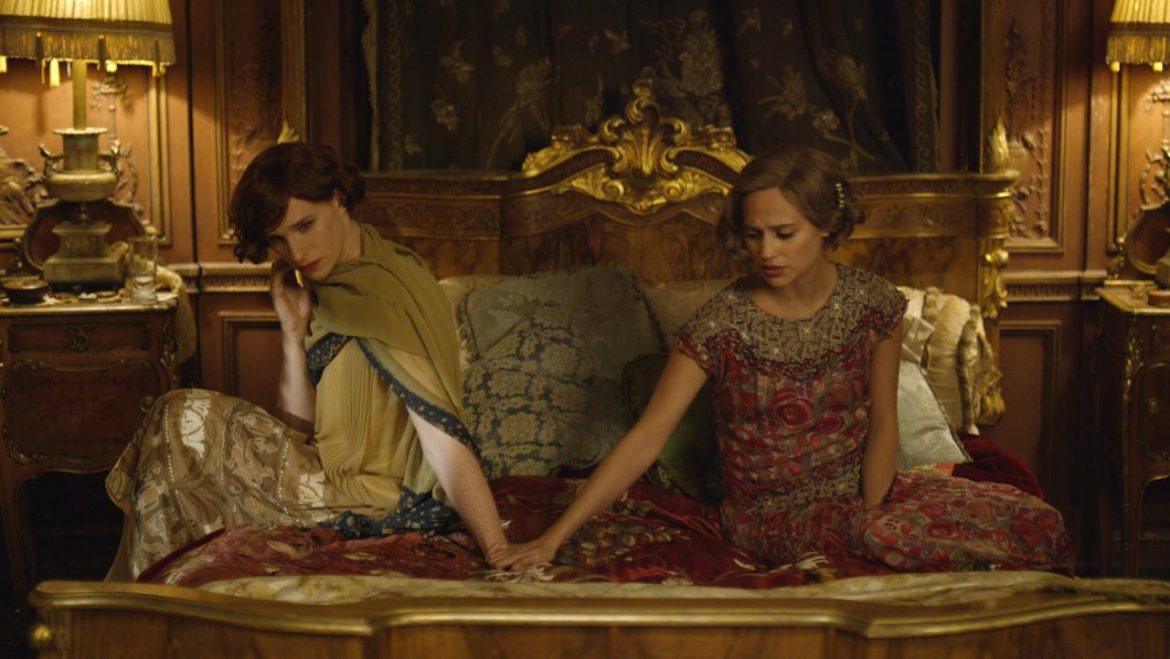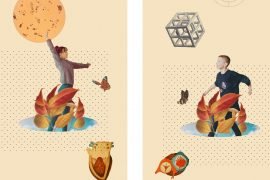Casablanca / Loving freedom
“With the whole world crumbling, we pick this time to fall in love” and “we’ll always have Paris” are two of the most famous quotes from one of the best films of all time. Casablanca (1942) is an explicit declaration of absolute love for freedom (as painful as that is!) Open warfare on selfishness and imposition. Because sometimes there is no greater gesture of love than a goodbye, surrender, letting go of the person we love so that they reach a happiness one can’t, knows how to or won’t offer them. “Go with him, Ilsa,” Rick demands.
- When? It should be prescribed at least once a month, every year for the rest of your lives. Maybe it isn’t so therapeutic (which it is) as pedagogical: values, principles, dignity, courage…
- Who with? Alone or with company, you’ll enjoy it either way. A being on this planet who isn’t passionate about this film directed by Michael Curtiz is yet to be found (and if you find one, don’t trust it and warn the authorities of good taste immediately). Whether it’s because of the warlike context or because Humphrey Bogart emanates testosterone even when he’s being cheesy, this is a love film that even the least romantic can perfectly tolerate.
- OS As times goes by. It’s addictive, so don’t panic if you find yourself saying “Play it again, Sam.”
Guess who’s coming to dinner / Interracial love
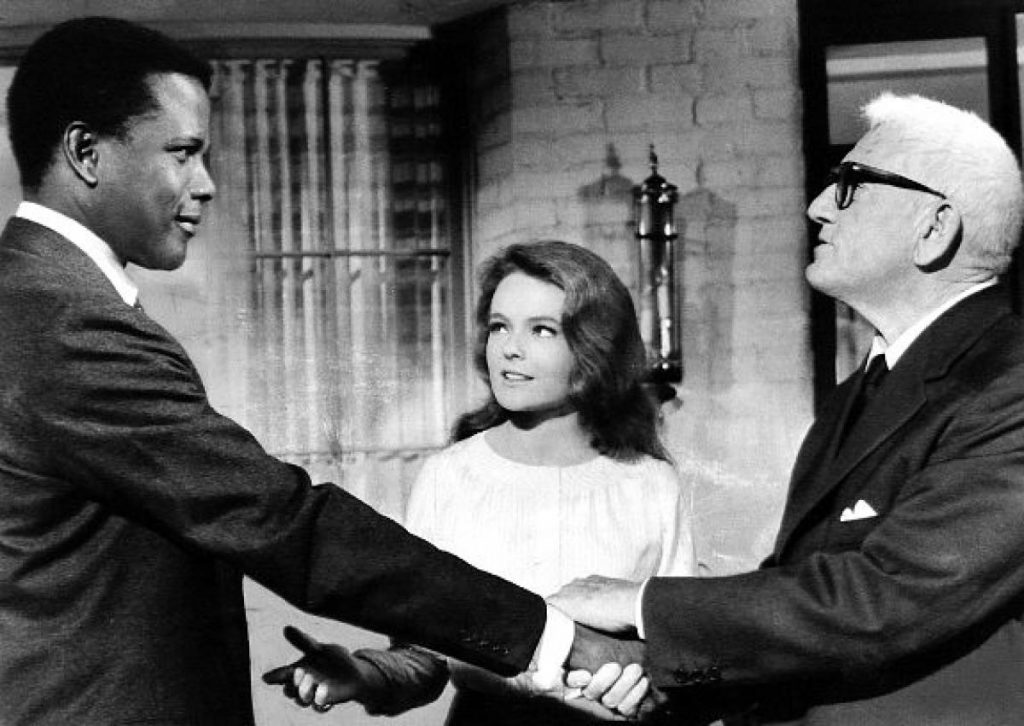
In addition to predicting the arrival of Barack Obama to the White House 40 years early, it depicts the prejudices, reluctance and moral dilemmas a liberal Democrat faces when his white daughter announces she is going to marry a black doctor. Considering you just have to love anything with the cinematographic and sentimental couple of Katherine Hepburn and Spencer Tracey in it, this comedy’s intelligent and always current script that tears down racial taboos makes us love Stanley Kramer’s Guess who’s coming to dinner (1967) forever. Tracey’s final intervention is worth reproducing as a whole but I’ll highlight these other two quotes from the film: “But you think of yourself as a coloured man. I think of myself as a man.” and “It’s not just that he doesn’t care about our colour difference, it’s that he seems to think there is no difference.”
- When? When you don’t dare to jump a barrier for fear of what others may think.
- Who with? Better alone, so you can really enjoy the dialogues.
The Danish girl / LGTB Love
The Danish girl (2015) narrates through visual poetry the real story of the artist Lili Elbe (1882-1931), the first man (Einar Wegener) who underwent gender reassignment surgery, and his wife Gerda, also a painter, who supported him and remained at his side throughout his life. “This film is the portrait of a couple who goes through a profound change with love as their guide,” explained director Tom Hooper. “I love you, because you are the only person who made sense of me. And made me, possible”, says Lili to Gerda.
- When? When we doubt whether fighting to be oneself is worth it.
- Who with? Accompanied by someone who has a great sensitivity to be able to be in silence when the film is over and then start a very long conversation.
The curious case of Benjamin Button / Love against the clock
“We’re meant to lose the people we love. How else would we know how important they are to us?” The curious case of Benjamin Button (2008) is based on a short story written in the 20s by F. Scott Fitzgerald, who, in turn, was inspired by a quote from Mark Twain: “Life would be infinitely happier if we could only be born at the age of eighty and gradually approach eighteen.” However, as the film proves, Twain’s life proposal would be equally or more painful. The love story between Benjamin and Daisy which completely disregards age is perhaps the best thing about this extraordinary fable. Cate Blanchett plays the role of the woman who has to accept the process of ageing while the person she loves goes through the opposite process.
- When? When you’re not in a hurry. The film is three hours long.
- Who with? You’ll enjoy it on your own or with company.
Untouchable / Loving someone you would have never loved
Philippe, a wealthy aristocrat who has become quadriplegic, hires Driss as an assistant, a young man from a public housing district who has recently been released from prison. Their worlds collide and thanks to the chaos generated by living together, an unexpected and crazy friendship emerges.
- When? Untouchable (2012) is ideal when you need a shot of positive energy.
- Who with? It’s a film that adults and children (from 10 years old) can enjoy.
- OS You’ll hear Vivaldi and Earth Wind and Fire
Edward Scissorhands / Loving a weirdo
Despite the visual impact it had in 1990, the argument is simple and always current: being moved by, empathising with and being attracted to the different, excluded or marginalised. Winona Ryder rejected the role of Mary Corleone in The Godfather III after reading the script for Edward Scissorhands; and whoever has seen Tim Barton’s film will understand why. Johnny Deep only says 159 words, but he begs for love through his look and sharp caresses.
- When? One of those stories you don’t remember in decades but that make you feel like you’ve discovered it for the first time every time.
- Who with? Ideally with children (from the age of 8). Burton’s message is quite deep: you don’t have to fear someone for being different; you just have to fear monsters who look just like us but don’t feel anything.
- OS Ice Dance
Irma la Douce / Loving beyond sex
Although the most commercial option was to include Pretty Woman in this list, we left Beverly Hills and stayed in Paris. In Irma la Douce (1963), the great Billy Wilder uses his sophisticated humour and tenderness to tell the story of a gendarme who falls madly in love with one of the prostitutes he arrests. “Shows you the kind of world we live in. Love is illegal – but not hate.” Amen.
- When?Like any work by Wilder, watching any of his pieces is worthwhile at any point you can spare the time.
- Who with? Feeling how smiles appear on their own while listening to the dialogues is magical.
Amour / Loving at the end
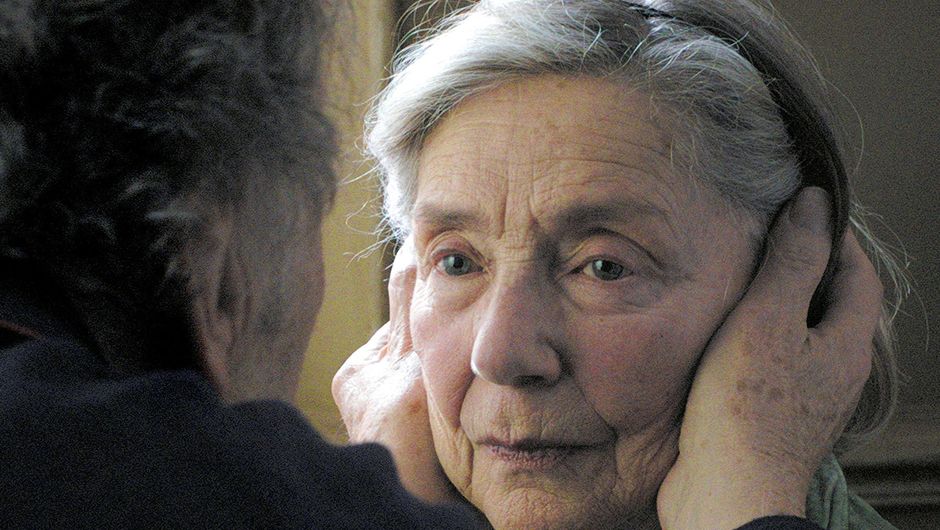
Desire and falling in love are ephemeral feelings. What are we left with after that? Perhaps nothing remarkable, but perhaps all the best things. Michael Haneke searches in old age for the greater meaning of love.
- When? When you are ready to take on reality. Don’t worry: it’s sad, but not depressing.
- Who with? With someone you love without nuances.
Wings of desire / Loving as a mortal
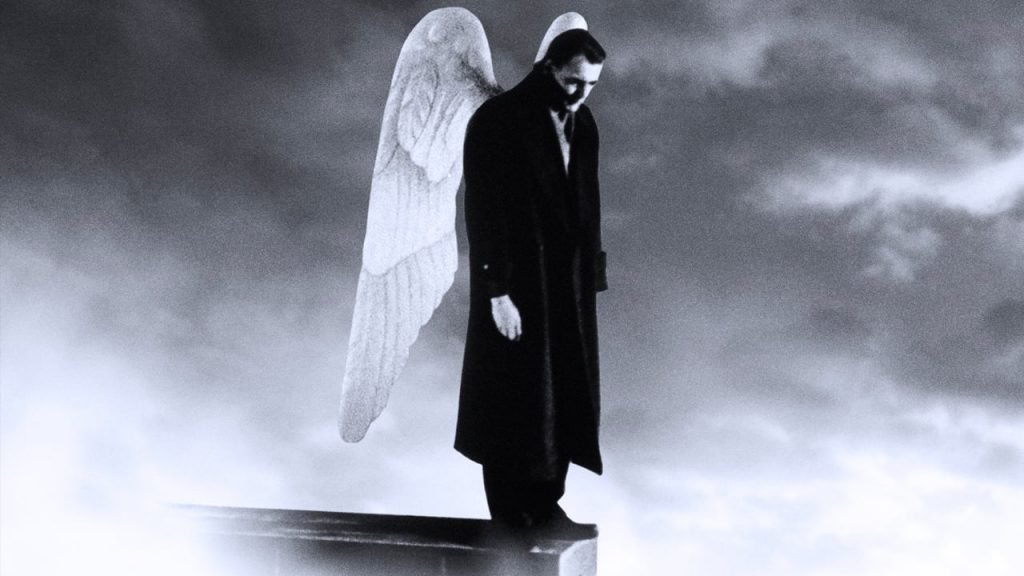
An angel gives up being one to experience what falling in love feels like. If you have seen City of Angels (an American remake of this 1987 German film), you’ll remember the story. The aesthetic will also seem familiar as it inspired the Christmas Lottery ads in Spain. One sentence? Angel Cassiel’s: “We are only spontaneous within our gravity.”
- When? Difficult and intense. You need to make an effort to enjoy it.
- Who with? And it is not suitable for all audiences. Not because of physical age, but intellectual age.
- OS Stay, by U2. The song was composed for the soundtrack of the film Faraway, so close!, continuation of Wings of desire.
Hachiko / Non-speciesist love
“Anyone who has never owned a dog can’t know what loving and being loved mean,” said Arthur Schopenhauer. The American remake of the Japanese film Hachiko monogatari (1987) directed by Seijirô Kôyama, is based on the true story of a dog so faithful to its owner that he went to wait for him at the train station every day. There is a bronze statue erected in his honour in that station today. The film portrays the love between two animals of different species and clarifies why nature believes that the life expectancy of a dog should be less than that of its master. Because dogs, unlike the humans, never get over the death of a friend. “Parker will never come home, but if Hachiko wants to wait for him, he should wait for him.”
- When? When you forget you are also an animal. Or in other words, when you suspect you’re becoming dehumanised.
- Who with? Preferably with your dog because you’ll need to hug him or her every five minutes. Don’t forget a box of tissues.
- OS Here’s Parker and Hachi walk to the station, although it could be any of Jan A.P’s delicate compositions. Kaczmarek created a moving piece.

